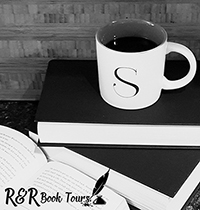To me, Shirley Jackson is one of the most fascinating authors in American literature. I’m sure that every high school students in the U.S. vividly remembers reading “The Lottery” for the first time, and The Haunting of Hill House has become one of the great classics of literary horror. Yet, Jackson also wrote light-hearted family stories for women’s magazines. So when I saw Ruth Franklin’s biography of Shirley Jackson, I was intensely curious. What inspired Jackson to write the disturbing fiction that she did? How did she reconcile those stories with the ones she wrote about her family and children in such a light-hearted way?
Ruth Franklin’s biography draws together the seemingly disparate elements of Jackson’s life, balancing the loving mother and irreverent housewife with the woman who unerringly found the dark fault lines beneath the seemingly idyllic post-war American suburbs. Jackson suffered from her mother’s cruel and cold-hearted judgements and her own deep insecurities, which were exacerbated by a husband who was her biggest supporter and most vicious critic. Jackson’s own life reflected the contradictions of her time, when women had won the right to vote and often found success in new fields, yet were also burdened with huge household responsibilities and expectations. What’s more, Jackson captured some of the loneliness and isolation women often felt at this time. It’s no surprise that many of her protagonists are quite literally trapped within their homes, often alone except for immediate family members.
Cover of Shirley Jackson: A Rather Haunted Life by Ruth Franklin
As a wife, mother, and writer myself, I was often shocked at how much Shirley’s situation spoke to me personally. She had four children and often wrote while her babies were napping, as I did when my children still took naps. She struggled to keep her house as clean as her neighbors expected, and until The Haunting of Hill House was published and became a huge phenomenon, she and her husband struggled with money. She struggled with her weight; her mother sent her cruel letters criticizing her for her looks, even after she became a bestselling author. Her doctors prescribed her weight-loss drugs and diet drinks. For someone who lived so long ago, her life and story felt strangely modern, and her struggles similar to the ones many creative women have today—balancing work and family, the pressures to look a certain way or to lose weight, dealing with unsupportive or misunderstanding family members.
I also love the way that Franklin captured some of Jackson’s writing process and the creation of her books. It certainly inspired me to read more of Shirley Jackson’s writing, in particular We Have Always Lived in the Castle, and hopefully I’ll eventually gear myself up to read the Haunting of Hill House (it sounds terrifying). I’m also curious about Jackson’s family memoirs as well, and I’ve read several of the stories in Let Me Tell You.
I’d recommend this book to anyone who’s interested in writing and biographies, and especially female writers. It’s a compelling read about a woman with an incredibly interesting life.
- April 2024 2
- March 2024 1
- October 2022 1
- November 2021 3
- October 2021 1
- September 2021 7
- August 2021 1
- July 2021 7
- June 2021 1
- May 2021 7
- April 2021 7
- March 2021 4
- February 2021 3
- January 2021 6
- December 2020 4
- November 2020 7
- October 2020 2
- September 2020 4
- August 2020 3
- July 2020 9
- June 2020 9
- May 2020 4
- April 2020 3
- March 2020 4
- February 2020 5
- January 2020 3
- December 2019 1
- November 2019 4
- October 2019 5
- September 2019 5
- August 2019 4
- July 2019 9
- June 2019 13
- May 2019 15
- April 2019 12
- March 2019 7
- February 2019 3
















